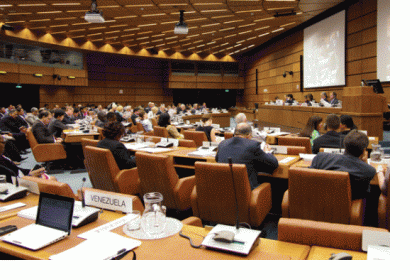The Scientific and Technical Subcommittee (STSC) of the Committee on Peaceful Uses of Outer Space (COPUOS) conducted its annual session from 15 to 26 February 2016 in the United Nations Office at Vienna (UNOV), to discuss relevant issues related to the scientific and technical aspects of space activities. Topics for discussion included space weather, near-Earth objects, space debris, the use of space technology for socioeconomic development, or for disaster management support, global navigation satellite systems, and the long-term sustainability of outer space activities.
The session provided an opportunity for Member States to discuss the use of space technology for socio-economic development in the context of the 2015-2030 development agenda and to address the preparations regarding the UNISPACE+50 process that will culminate in 2018 with an international event. UNISPACE+50 aims to become a major milestone for the design of the roadmap for the United Nations space policy that the global community needs for the next 15 years and beyond.
As indicated by Ms. Simonetta Di Pippo, Director of UNOOSA, the UNISPACE+50 process will include a series of High-level Fora between 2016 and 2018, “that will serve for the collective space community to provide guidance and recommendations on the potentials of space science and technology in fostering global development, and at the same time fostering partnership and providing a framework for cooperation development”.
UN-SPIDER used the opportunity to present its report on activities conducted in 2015 and to meet with representatives of Member States to plan its 10 year anniversary meeting, to be conducted at UNOV just before the annual session of COPUOS in June 2016, and to discuss on-going activities.

